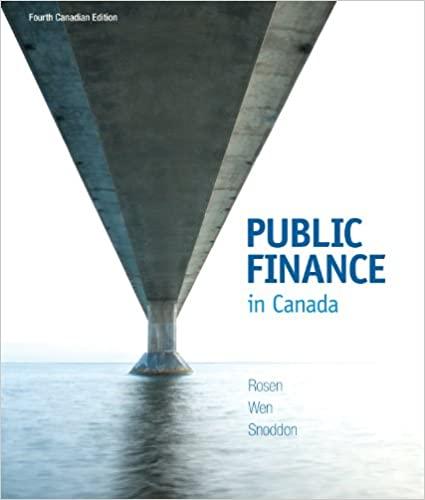Question
Here's our discussion for Week 2: I came across this article (S. Titman, Urban land prices under uncertainty, American Economic Review 75 (1985): 505-514) which
Here's our discussion for Week 2:
I came across this article (S. Titman, "Urban land prices under uncertainty", American Economic Review 75 (1985): 505-514) which I thought was relevant for this week's discussion on real options.
"Why are there empty lots in built-up areas of big cities?"
Have you ever wondered why there are empty lots (for example, a parking lot) right next to multi-story buildings in a city? Afterall, if it was optimal for the next door neighbor to build a multi-story building, why would someone choose to leave the lot empty? In many cases, the property taxes exceed the revenue generated by the empty lot, so by putting a revenue-producing building on the lot, the owner could turn a negative CF into a positive CF. However, by building on the lot, the owner gives up the option to construct a different building in the future. If there is a large amount of uncertainty about the kind of building to put on the lot, and if this uncertainty might be resolved in the future, it might make sense to wait for additional information before breaking ground on a building. The value of waiting might exceed the NPV of building today.
Notice a similar effect in the price of agricultural land that is close to big cities. Even though the land might produce the same agricultural revenue as similar land 100 miles away, the price of the land closer to the city is higher because the price reflects the possibility that the city might grow to the point that it becomes economical to put the land to non-agricultural use - that is, subdivide it and build family housing or any other facilities. The option to one day use the land in this way is reflected in the current price of the land.
If you take a moment to reflect, you will realize that there are numerous illustrations of real options in our daily lives, unlike that of financial options.
What is the difference between real and financial options?
Why does a real option add value to an investment decision? Have you encountered or noticed any real options (options to delay, growth options, abandonment options) in the life around you?
Step by Step Solution
There are 3 Steps involved in it
Step: 1

Get Instant Access to Expert-Tailored Solutions
See step-by-step solutions with expert insights and AI powered tools for academic success
Step: 2

Step: 3

Ace Your Homework with AI
Get the answers you need in no time with our AI-driven, step-by-step assistance
Get Started


